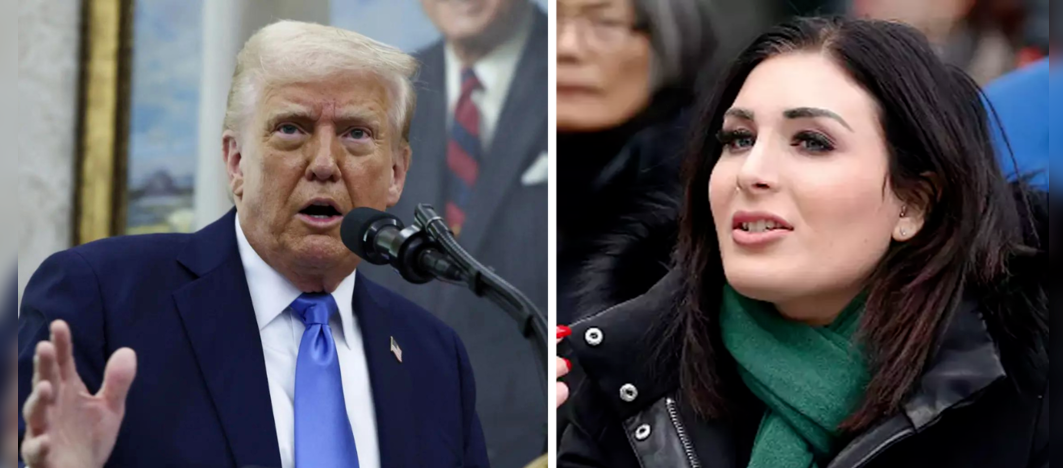Four tiny rocky planets found orbiting Barnard’s star: A milestone discovery
Astronomers have confirmed the existence of four rocky planets orbiting Barnard’s Star, the closest single star to our solar system. Situated just six light-years away, Barnard’s Star has long been…
Pakistan fined for slow over-rate in second ODI against New Zealand
Pakistan have been fined five per cent of their match fee for maintaining a slow over-rate against New Zealand in the second ODI in Hamilton on Wednesday. Jeff Crowe of…
More money, more say: Djokovic, 19 others demand from Grand Slams
Novak Djokovic, Jannik Sinner, Aryna Sabalenka and Coco Gauff are among 20 leading tennis players who signed a letter sent to the heads of the four Grand Slam tournaments seeking…
ISL Semifinals: Jamshedpur FC snatch late winner in first leg against Mohun Bagan
They were beaten in the first leg of the league stage and managed a 1-1 draw in front of the home crowd in the return leg. On Thursday, Khalid Jamil’s…
IPL 2025, LSG vs MI: Struggling Rohit Sharma, Rishabh Pant face the music
Lucknow Super Giants (LSG) skipper Rishabh Pant and Mumbai Indians (MI) star Rohit Sharma will be under the scanner due to poor form when these two teams face off at…
“Bowling Wasn’t Bad”: Pat Cummins Throws SRH Batters, Fielders Under The Bus After KKR Defeat | Cricket News
Sunrisers Hyderabad (SRH) captain Pat Cummins admitted that his team was far from its best after suffering an 80-run defeat against Kolkata Knight Riders (KKR) in Kolkata on Thursday. The…
When Manoj Kumar Filed Defamation Charges Against Shah Rukh Khan, Sought Rs 100 Crore Compensation
The year was 2007 when Farah Khan’s Om Shanti Om released, headlined by Shah Rukh Khan. Deepika Padukone’s debut film created a lot of buzz but a particular scene of…
Microsoft at 50: Bill Gates is Gifting Everyone With the Company’s Original Source Code
Fifty years ago, Bill Gates and his childhood friend Paul Allen founded a company called “Micro-Soft” in a strip mall in Albuquerque, New Mexico. Half a century later, the company…
Global markets today: US stock market crashes; S&P 500 sheds $2.4 trillion as Trump’s tariffs stoke recession fears
US stock market slumped on Thursday, with the Wall Street benchmark indices ending with the largest single-day percentage losses since 2020, after US President Donald Trump’s sweeping trade tariffs stoked…
‘Aspire for 10% growth before chiding job creators’: Grover slams Goyal over remarks on startups
Ashneer Grover, former co-founder and managing director of BhartPe, on April 4 slammed Union minister Piyush Goyal and the government for “chiding today’s job creators”. The former Shark Tank judge…
 Four tiny rocky planets found orbiting Barnard’s star: A milestone discovery
Four tiny rocky planets found orbiting Barnard’s star: A milestone discovery Pakistan fined for slow over-rate in second ODI against New Zealand
Pakistan fined for slow over-rate in second ODI against New Zealand More money, more say: Djokovic, 19 others demand from Grand Slams
More money, more say: Djokovic, 19 others demand from Grand Slams ISL Semifinals: Jamshedpur FC snatch late winner in first leg against Mohun Bagan
ISL Semifinals: Jamshedpur FC snatch late winner in first leg against Mohun Bagan IPL 2025, LSG vs MI: Struggling Rohit Sharma, Rishabh Pant face the music
IPL 2025, LSG vs MI: Struggling Rohit Sharma, Rishabh Pant face the music “Bowling Wasn’t Bad”: Pat Cummins Throws SRH Batters, Fielders Under The Bus After KKR Defeat | Cricket News
“Bowling Wasn’t Bad”: Pat Cummins Throws SRH Batters, Fielders Under The Bus After KKR Defeat | Cricket News When Manoj Kumar Filed Defamation Charges Against Shah Rukh Khan, Sought Rs 100 Crore Compensation
When Manoj Kumar Filed Defamation Charges Against Shah Rukh Khan, Sought Rs 100 Crore Compensation Microsoft at 50: Bill Gates is Gifting Everyone With the Company’s Original Source Code
Microsoft at 50: Bill Gates is Gifting Everyone With the Company’s Original Source Code Global markets today: US stock market crashes; S&P 500 sheds $2.4 trillion as Trump’s tariffs stoke recession fears
Global markets today: US stock market crashes; S&P 500 sheds $2.4 trillion as Trump’s tariffs stoke recession fears ‘Aspire for 10% growth before chiding job creators’: Grover slams Goyal over remarks on startups
‘Aspire for 10% growth before chiding job creators’: Grover slams Goyal over remarks on startups

























































































